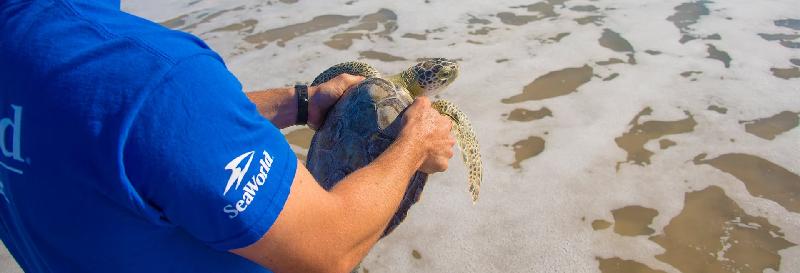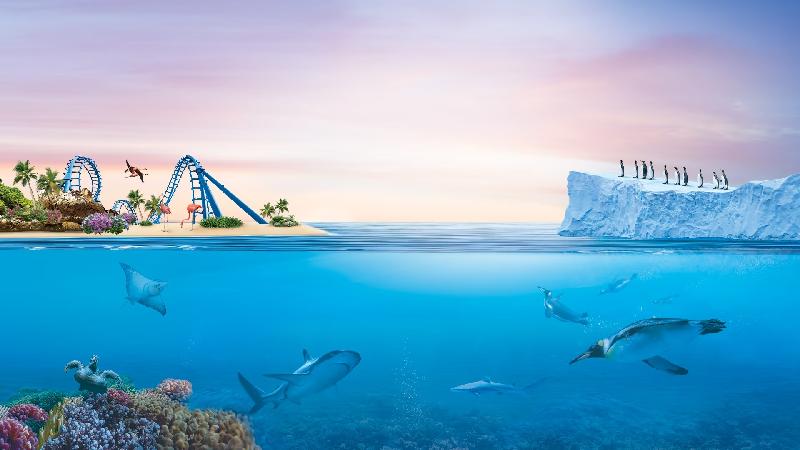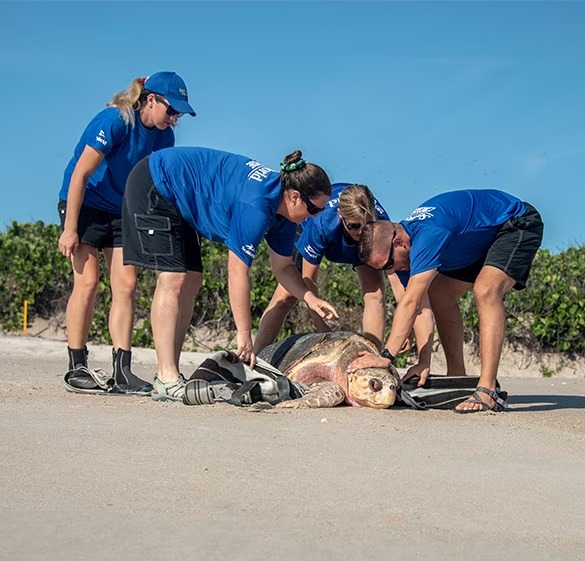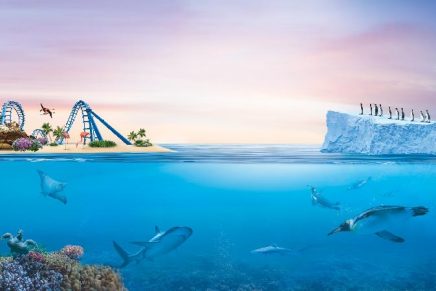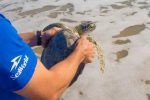Abu Dhabi Inaugurated Yas SeaWorld, First Dedicated Marine Research, Rescue, Rehabilitation And Return Center In The Region.
Located on Yas Island, the center includes a rescue clinic, a state-of-the-art veterinary hospital, rehabilitation pools, an onsite lab, and an aquaculture facility.
Miral, the leading creator of immersive destinations and experiences, and SeaWorld Parks & Entertainment, announce the opening of Yas SeaWorld Research & Rescue, Yas Island, Abu Dhabi, the first dedicated marine research, rescue, rehabilitation and return center in the region. The 8,602 m2 center, is located on Abu Dhabi’s Yas Island and will be a key contributor to marine-life conservation in both the UAE and the wider region by conducting integrated research, rescue, rehabilitation, return and education programs.
The center’s efforts will aim to improve the public’s knowledge and commitment to the conservation of the region’s marine wildlife, habitats, and ecosystems, leveraging the experience and knowledge gained from SeaWorld’s nearly 60 years of marine animal care, rescue, rehabilitation and conservation to the region.
This is a cornerstone in the emirate’s journey of education and conservation, inspiring the next generation of marine scientists to learn more about Abu Dhabi’s impactful long-term vision of protecting marine wildlife and their habitats.
Led by a team of dedicated marine scientists, zoologists and subject matter experts in research, rescue and animal care, the center will play an important role in research and conservation efforts in the region. The center’s Research team will conduct fundamental and applied studies focusing on the marine ecology of the Arabian Gulf covering topics such as marine biodiversity, ecosystem resilience, sensitive wildlife conservation, critical habitats restoration, fisheries, pollution and wildlife health.
Yas SeaWorld Research & Rescue aims to rescue sick, injured and orphaned marine animals in the Arabian Gulf and to provide life-saving rehabilitation with the goal of returning healthy animals back to their natural habitats. To facilitate this goal, the center will have a fleet of rescue vehicles that includes two custom-made rescue boats and a state-of-the art veterinary hospital for triage of animals in critical condition. The center will also have over 25 rescue pools, from large pools for marine mammals to smaller pools for fish, invertebrates and marine reptiles. Two of the larger pools are equipped with lifting floors, which will make access for treatment easier and less disruptive for the animals. An onsite lab at the center is also equipped with advanced rescue and rehabilitation capabilities including the ability to conduct in-house pathology analysis for wildlife.
The center will also focus on applied research studies for marine ecosystem restoration with aquaculture-based projects including fish propagation, seagrass cultivation, coral reproduction as well as field projects focusing on critical habitats of Arabian Gulf waters such as seagrass, mangroves, oyster beds and coral reefs. This research will only be made possible through some of the best subject matter researchers and scientists and by utilizing the state-of-the-art laboratories and infrastructure of the center, including three dry laboratories, a wet laboratory, and a 345 m3 aquaculture facility which includes live feed culture rooms, brood stock pools and larvae culture pools. The center’s research team will conduct most of these studies by use of its 12.5 m research vessel decked with the latest field equipment.
As part of its commitment to enhancing public knowledge and inspiring the next generation of marine biologists, the center’s Education department will bring together a skilled team of marine scientists and a dedicated team of marine animal rescue experts. Along with a joint SeaWorld Abu Dhabi team of expert educators, the center has a dry classroom and a wet classroom fully equipped for scientific experimental activities in addition to a high-tech auditorium which can seat 160 people. The center will conduct workshops and lectures, both on its premises and in schools, offering learning and training opportunities for students as well as educators in the areas of marine life science and conservation.

